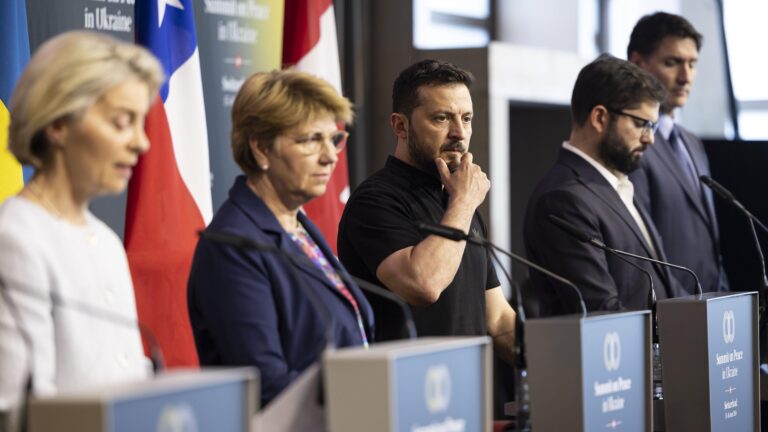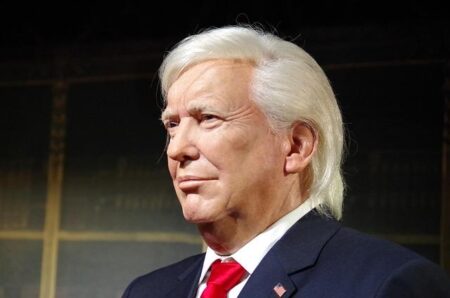Russian President Vladimir Putin has announced that Russia is prepared to enter a third round of peace negotiations with Ukraine, as the protracted conflict between the two nations shows no signs of abating. Speaking amid ongoing military operations, Putin’s statement signals a potential diplomatic opening, even as fighting continues on the ground. The announcement comes amid international calls for a peaceful resolution to the war, which has drawn widespread condemnation and significant geopolitical consequences.
Putin Signals Willingness for Renewed Peace Negotiations Amid Ongoing Conflict
President Vladimir Putin publicly announced that Russia is prepared to enter a third round of peace negotiations with Ukraine, signaling a potential breakthrough amid months of relentless conflict. This declaration came during a recent televised address where Putin emphasized Russia’s willingness to engage in dialogue, despite ongoing military operations on the ground. Analysts see this move as an attempt to manage international pressure while maintaining a strategic positioning in the conflict.
Key details of Putin’s statement included:
- Russia’s readiness to negotiate without preconditions
- Focus on securing Russian interests while seeking cessation of hostilities
- Calls for Ukraine and its Western allies to demonstrate “constructive engagement”
| Aspect | Putin’s Position |
|---|---|
| Peace Talks | Ready for third round |
| Negotiation Conditions | No preconditions |
| Military Strategy | Maintain pressure, pursue talks concurrently |
| Diplomatic Approach | Calls for Western cooperation |
Assessing the Prospects and Challenges of a Third Round of Russia-Ukraine Talks
The announcement by President Putin that Russia is prepared for a third round of peace talks brings both cautious optimism and significant skepticism to the international community. On one hand, the willingness to re-engage in dialogue signals a potential opening for diplomatic resolution amid an escalating conflict that has caused widespread humanitarian crises. However, analysts warn that past negotiations failed to produce substantial breakthroughs, largely due to entrenched positions on key issues such as territorial control, security guarantees, and the political status of contested regions. The success of upcoming talks will hinge on whether both parties can move beyond symbolic gestures and address core disputes with genuine compromise.
Several challenges threaten to undermine the efficacy of this third round, including:
- Mutual distrust: Deep-rooted suspicions between Moscow and Kyiv impede the building of reliable communication channels.
- External influences: The involvement of NATO, the EU, and other global actors complicates direct bilateral dialogue.
- On-the-ground realities: Continued hostilities and territorial advances may harden negotiating stances.
| Key Factors | Impact on Talks |
|---|---|
| Territorial Disputes | Core obstacle preventing agreement |
| Security Concerns | Demand for guarantees stalls progress |
| International Pressure | Both a catalyst and complicator |
| Humanitarian Imperatives | Push towards ceasefire talks |
Strategic Recommendations for Facilitating Effective Dialogue and Lasting Resolution
To navigate the complexities of renewed peace negotiations, it is essential to implement a strategic framework that fosters trust and transparency between Russia and Ukraine. Key measures include:
- Establishing clear communication channels that ensure timely and consistent dialogue without intermediaries that may distort messages.
- Engaging neutral third-party mediators who can facilitate constructive discussion while maintaining impartiality.
- Setting mutually agreed agendas to focus talks on achievable goals and prevent derailments caused by shifting priorities.
Moreover, sustained efforts to build lasting resolution should incorporate confidence-building initiatives such as humanitarian aid corridors and phased ceasefires. Below is a simplified comparison of key negotiation phases and corresponding outcomes based on past dialogue rounds:
| Negotiation Phase | Primary Goals | Critical Outcome |
|---|---|---|
| Initial Talks | Ceasefire agreements | Temporary reduction in hostilities |
| Mid-Level Negotiations | Humanitarian access | Improved civilian safety |
| Final Round | Territorial compromises | Framework for long-term peace |
Wrapping Up
As the conflict between Russia and Ukraine persists, the announcement by President Vladimir Putin that Russia is prepared for a third round of peace talks signals a potential, if cautious, step toward dialogue. Observers will be watching closely to see whether these discussions can yield meaningful progress amid ongoing hostilities. The international community remains hopeful that diplomatic efforts will help pave the way for a resolution to the war that has deeply impacted the region and beyond.




